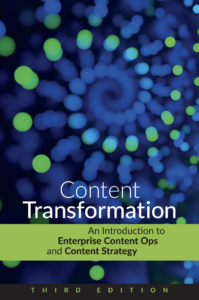TOC: Chris Anderson/Free: The economics of giving stuff away
Chris Anderson, editor-in-chief, Wired Magazine
The cost of things tend to fall to zero over time.
You can build business around giving things away:
- Free samples
- Skype, YouTube, free unlimited storage on Yahoo
- Ad-supported media..product is free, make it back on ads
- Free ice cream samples
- Give away razor, sell blades
- Gift economy/wikipedia, craigslist: people donate expertise/time for nonmonetary — attention, reputation, expression…never before “dignified” as an economy. There is an economy, just money is not the currency.
If marginal cost of reaching the N+1 customer is approaching zero, then treat the product as free and figure out how to sell something else.
The price of a magazine like Wired is arbirary; it bears no relationship to the actual cost of the magazine. The subscription price is intended to qualify your interest. Setting the price too low “devalues the product.”
Most music is free. “Free as in speech” — DRM is going away. “Free as in beer” — bands are experimenting with giving away music to market the live performances.
Games and movies would be free if not protected. They are locked down to enforce prices. Artificial barriers tend to fall over time. Already seeing ad-supported videogames. (neopets)
The shining exception: Books! They are not asymptotically approaching free. Books make sense. They provide the optimal way to read. The physical product is better than digital product…excellent battery life, screen resolution, portable, and it even looks good on your shelf. Easy to flip through.
If “free” is “the business model of the 21st century,” how could a book be free?
(This was preceded with a disclaimer that many of these options would be “offensive” to people in the audience.)
For his next book, Anderson wants to do the following:
- Audiobook will be free with book (mp3) (free coupon in real book)
- Will participate in book search, include Google
- Considering an e-book locked to a specific reader for free
- Unlocked e-book with advertising inserted
- Book online with ads in the margins
- As many sample chapters as publisher will accept
How could a physical book be free?
- Sponsored book
- Consultants give away books
- Book with ads
- Free rebate
- Free to influentials/reviewers
- Libraries have always had free books
Why do it?
- Free book is marketing for the non-free thing
- Book is marketing vehicle for celebrity
- Can’t give away time
- If free version is inferior, you give it away to market the better product
- Use “free” to maximize reach to new influentials
Why aren’t more people doing free content?
- Most people are not represented by a speaker’s bureau and can’t monetize fame
- Online sample is not a compelling example of book (maybe for cookbook, probably not for novel)
- No natural advertiser
- Publisher opposition — publishers not in business of selling celebrity
- Annoys the retailers
- Fear and timidity/fear of cannibalization
The most critical point: The interests of the author and the publisher are critically misaligned. Publishers doesn’t benefit from speaking fees of consulting fees, only from book sales.
Sounds like an argument for self-publishing to me.


